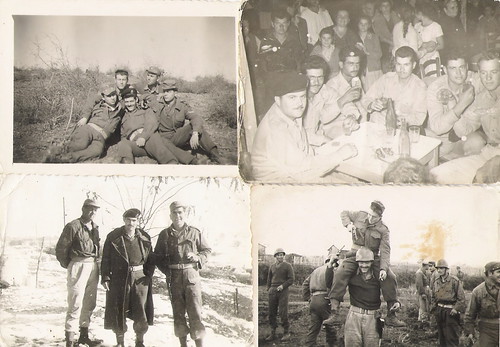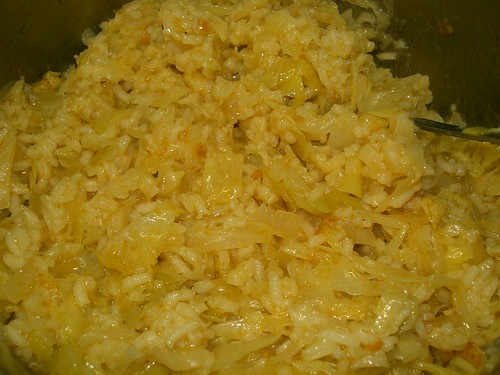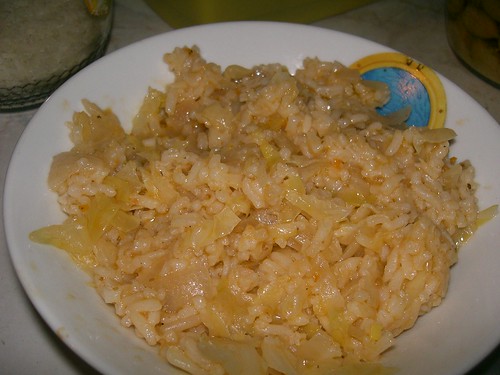All photos were taken yesterday in the late afternoon at the German cemetery of Maleme, Hania.
About a year ago, I attended a lecture given by a group of economists who wished to point out to the general public that there is a way out of the economic crisis that the country is in. It was a very interesting discussion, conducted in a civilised orderly manner, with a full house attending. Among the speakers was the German EURO-MP Giorgos Hadjimarkakis, whose origins are from Hania. Given his high profile position, his job, his origins and his present status, he had some valid points to make; the crux of his opinion lay in one word: he believes that the whole economic crisis was simply a matter of one side misunderstanding the other - and I am inclined to agree.

Since the economic crisis began, the Greek mainstream media mainly pick up on what the Germans say about the Greeks, or to put it another way, what Germany says about Greece. Generally speaking, we hear mainly extreme points of view from both sides, which could be summarised by cultural differences, something that seems clear to me, but of course, among politicians, such clarity is not always preferred because the answers seem so obvious and too straighforward for the power games being played in the highest echelons of international government. It doesn't suit those in such positions to talk about matters in such simple terms because the answers suddenly become simple too, and each side has its own agenda, to keep their position and to keep those under them happy, which doesn't seem to be happening much these days.

As an example of what I mean by a simple solution, it's quite obvious that one side doesn't have the money - and will never have it - to repay enormous debts. On the other hand, it's obvious that the other side wants to ensure that they get their money back whatever the cost, even though they are not really short of money and can do without it. Scraping to the bottom of the pan, it becomes clear that one side has consistently shown it can never repay such loans, while the other side consistently lends out money to them, doing whatever they can to force the others to pay them back - and still no real result. So the simple answer is that Germany should stop lending money to Greece, something Germany won't do because of the consequences to the value of the euro - the medicine isn't working, but no one is willing to change it. Apparently there is too much to lose - for both sides of course - so the game continues to be played in the same way.


Politicians' handling of the situation has pitted people against each other, it has had detrimental effects on relationships between the two nations and the two peoples, and it has exacerbated the problems caused by mainly cultural differences. These differences were recently pointed out to me through a study comparing extension agents (who generally play the role of advisors) of organic farming in Baden-Württemberg (BW), Germany and Crete, Greece. The study was conducted by a German researcher at MAICh.

In a nutshell, the main difference between the groups was that BW organic farmers like to get their information through leaflets, regular newsletters and advice from public servants, while the Cretan organic farmers preferred sources such as the internet (Greek organic farmers use it to get the information they want without a middleman), private advisors (eg people who work in shops selling supplies for organic farmers) and seeing what other organic farmers do. And now for the similarities: both groups like to discuss organic farming issues with other farmers - and they get the same results in the end.

As I read the study for the purposes of proofreading for English language grammar, it came to my mind that an implicit reason for the different types of information sources between the groups involves a matter of trust: in Germany, the public service seems reputable whereas in Greece, it does not. The difficulty of the (in particular) Cretan terrain (mountainous land) with organic farming taking place on small plots of land can be compensated by the difficulty of the German weather (low temperatures) with organic farming taking place on very large expanses of land. The Germans like to be well informed; the Greeks prefer to 'see and do'. This is all a matter of education and tradition. But at the end of the day, they get the same job done (they produce certified organic food).

Yesterday, I was in the Maleme area, a coastal village of some significance in the contemporary history of Crete. It was where the Battle of Crete took place, where the German parachutists began falling out of the sky onto Cretan land - there was no other way for the Nazis to get their troops onto the island, due to the heavy resistance that they faced from the Cretans. The invasion was successful, meaning that the Nazis managed to occupy the island - but it came at a great cost to them: an unbelievably high number of their troops were killed by the local people, who were ill-equipped and had hardly any weapons. Many of the parachutists - young boys who were executing orders on a mission - got stuck in olive trees, and the locals beat them with rocks, sticks, and whatever other non-technological self-styled weapons they could muster. A high number were also killed on impact with the rocky ground, or in the sea. The German soldiers who died on Cretan soil were laid to rest in a cemetery in Maleme village, which to this day, is still tended by the German government.

The cemetery is another example showing how Greeks and Germans differ culturally - but at the end of the day, they share similarities in the crux of the issue, which, in the case of the German cemetery for those who died in battle, is that both sides show respect to the lives lost, the lives of people who were not to blame for the atrocities of war. The German cemetery has that functional simple look that you come across in the German culture, something totally removed from the individual level; nothing like a Greek cemetery, where colours and personalisation of graves is a common sign of the respect paid by family members to their departed. Tombstones are rarely simple orthogonal structures in Greece, and there is always provision made for a perpetual flame for each individual grave.

The German cemetery has the kinky Northern European look of a well-ordered nature park, with well-marked pathways for guided walks and simple wooden benches along the way to stop and admire the view. Of course, Greek cemeteries don't have such pathways and benches, but even in other Greek nature areas, the pathways are often uneven asymmetrical dirt tracks, and any seating area will probably look a little disarrayed. But that's not the point - the differencs in the way Greek and German nature areas are set up simply shows the cultural habits of the people; the end result is that people actually get enjoyment out of what they see and do there. In most cases, both sides can appreciate each other's sites of interest; this is achievable if respect is shown to the needs of both sides.

The area surrounding the German cemetery reminded me of that orderly look I saw in the Tiergarten in Berlin, and the predominantly monoculture species of trees and vegetation that I came across in Berlin parks. It looked very tidy, neat and orderly compared to the huge range of biodiversity, which is rarely tamed, that one comes across in Greek nature areas. The German parks resemble German technology in their perfection; the Greek parks show our lack of uniformity in other aspects of life. But at the end of the day, what counts is that Germans can come to Greece as tourists and appreciate the vast range of natural beauty that the Greek landscape offers - and Greek tourists to Germany can also appreciate whatever it is that fascinates them into buying German technology and holding it in high esteem.

We are all different, and we find it easy to compare each other through our differences, because they stand out more than our similarities. But at the end of the day, we all get the same job done - we are all trying to get through life using the resources most easily available to us, preferring those that work better in each individual case.

©All Rights Reserved/Organically cooked. No part of this blog may be
reproduced and/or copied by any means without prior consent from Maria
Verivaki.

Since the economic crisis began, the Greek mainstream media mainly pick up on what the Germans say about the Greeks, or to put it another way, what Germany says about Greece. Generally speaking, we hear mainly extreme points of view from both sides, which could be summarised by cultural differences, something that seems clear to me, but of course, among politicians, such clarity is not always preferred because the answers seem so obvious and too straighforward for the power games being played in the highest echelons of international government. It doesn't suit those in such positions to talk about matters in such simple terms because the answers suddenly become simple too, and each side has its own agenda, to keep their position and to keep those under them happy, which doesn't seem to be happening much these days.

As an example of what I mean by a simple solution, it's quite obvious that one side doesn't have the money - and will never have it - to repay enormous debts. On the other hand, it's obvious that the other side wants to ensure that they get their money back whatever the cost, even though they are not really short of money and can do without it. Scraping to the bottom of the pan, it becomes clear that one side has consistently shown it can never repay such loans, while the other side consistently lends out money to them, doing whatever they can to force the others to pay them back - and still no real result. So the simple answer is that Germany should stop lending money to Greece, something Germany won't do because of the consequences to the value of the euro - the medicine isn't working, but no one is willing to change it. Apparently there is too much to lose - for both sides of course - so the game continues to be played in the same way.


Politicians' handling of the situation has pitted people against each other, it has had detrimental effects on relationships between the two nations and the two peoples, and it has exacerbated the problems caused by mainly cultural differences. These differences were recently pointed out to me through a study comparing extension agents (who generally play the role of advisors) of organic farming in Baden-Württemberg (BW), Germany and Crete, Greece. The study was conducted by a German researcher at MAICh.

In a nutshell, the main difference between the groups was that BW organic farmers like to get their information through leaflets, regular newsletters and advice from public servants, while the Cretan organic farmers preferred sources such as the internet (Greek organic farmers use it to get the information they want without a middleman), private advisors (eg people who work in shops selling supplies for organic farmers) and seeing what other organic farmers do. And now for the similarities: both groups like to discuss organic farming issues with other farmers - and they get the same results in the end.

As I read the study for the purposes of proofreading for English language grammar, it came to my mind that an implicit reason for the different types of information sources between the groups involves a matter of trust: in Germany, the public service seems reputable whereas in Greece, it does not. The difficulty of the (in particular) Cretan terrain (mountainous land) with organic farming taking place on small plots of land can be compensated by the difficulty of the German weather (low temperatures) with organic farming taking place on very large expanses of land. The Germans like to be well informed; the Greeks prefer to 'see and do'. This is all a matter of education and tradition. But at the end of the day, they get the same job done (they produce certified organic food).

Yesterday, I was in the Maleme area, a coastal village of some significance in the contemporary history of Crete. It was where the Battle of Crete took place, where the German parachutists began falling out of the sky onto Cretan land - there was no other way for the Nazis to get their troops onto the island, due to the heavy resistance that they faced from the Cretans. The invasion was successful, meaning that the Nazis managed to occupy the island - but it came at a great cost to them: an unbelievably high number of their troops were killed by the local people, who were ill-equipped and had hardly any weapons. Many of the parachutists - young boys who were executing orders on a mission - got stuck in olive trees, and the locals beat them with rocks, sticks, and whatever other non-technological self-styled weapons they could muster. A high number were also killed on impact with the rocky ground, or in the sea. The German soldiers who died on Cretan soil were laid to rest in a cemetery in Maleme village, which to this day, is still tended by the German government.

The cemetery is another example showing how Greeks and Germans differ culturally - but at the end of the day, they share similarities in the crux of the issue, which, in the case of the German cemetery for those who died in battle, is that both sides show respect to the lives lost, the lives of people who were not to blame for the atrocities of war. The German cemetery has that functional simple look that you come across in the German culture, something totally removed from the individual level; nothing like a Greek cemetery, where colours and personalisation of graves is a common sign of the respect paid by family members to their departed. Tombstones are rarely simple orthogonal structures in Greece, and there is always provision made for a perpetual flame for each individual grave.

The German cemetery has the kinky Northern European look of a well-ordered nature park, with well-marked pathways for guided walks and simple wooden benches along the way to stop and admire the view. Of course, Greek cemeteries don't have such pathways and benches, but even in other Greek nature areas, the pathways are often uneven asymmetrical dirt tracks, and any seating area will probably look a little disarrayed. But that's not the point - the differencs in the way Greek and German nature areas are set up simply shows the cultural habits of the people; the end result is that people actually get enjoyment out of what they see and do there. In most cases, both sides can appreciate each other's sites of interest; this is achievable if respect is shown to the needs of both sides.

The area surrounding the German cemetery reminded me of that orderly look I saw in the Tiergarten in Berlin, and the predominantly monoculture species of trees and vegetation that I came across in Berlin parks. It looked very tidy, neat and orderly compared to the huge range of biodiversity, which is rarely tamed, that one comes across in Greek nature areas. The German parks resemble German technology in their perfection; the Greek parks show our lack of uniformity in other aspects of life. But at the end of the day, what counts is that Germans can come to Greece as tourists and appreciate the vast range of natural beauty that the Greek landscape offers - and Greek tourists to Germany can also appreciate whatever it is that fascinates them into buying German technology and holding it in high esteem.

We are all different, and we find it easy to compare each other through our differences, because they stand out more than our similarities. But at the end of the day, we all get the same job done - we are all trying to get through life using the resources most easily available to us, preferring those that work better in each individual case.

One of the most famous impressions of the Battle of Crete, by Petros Vlahakis



